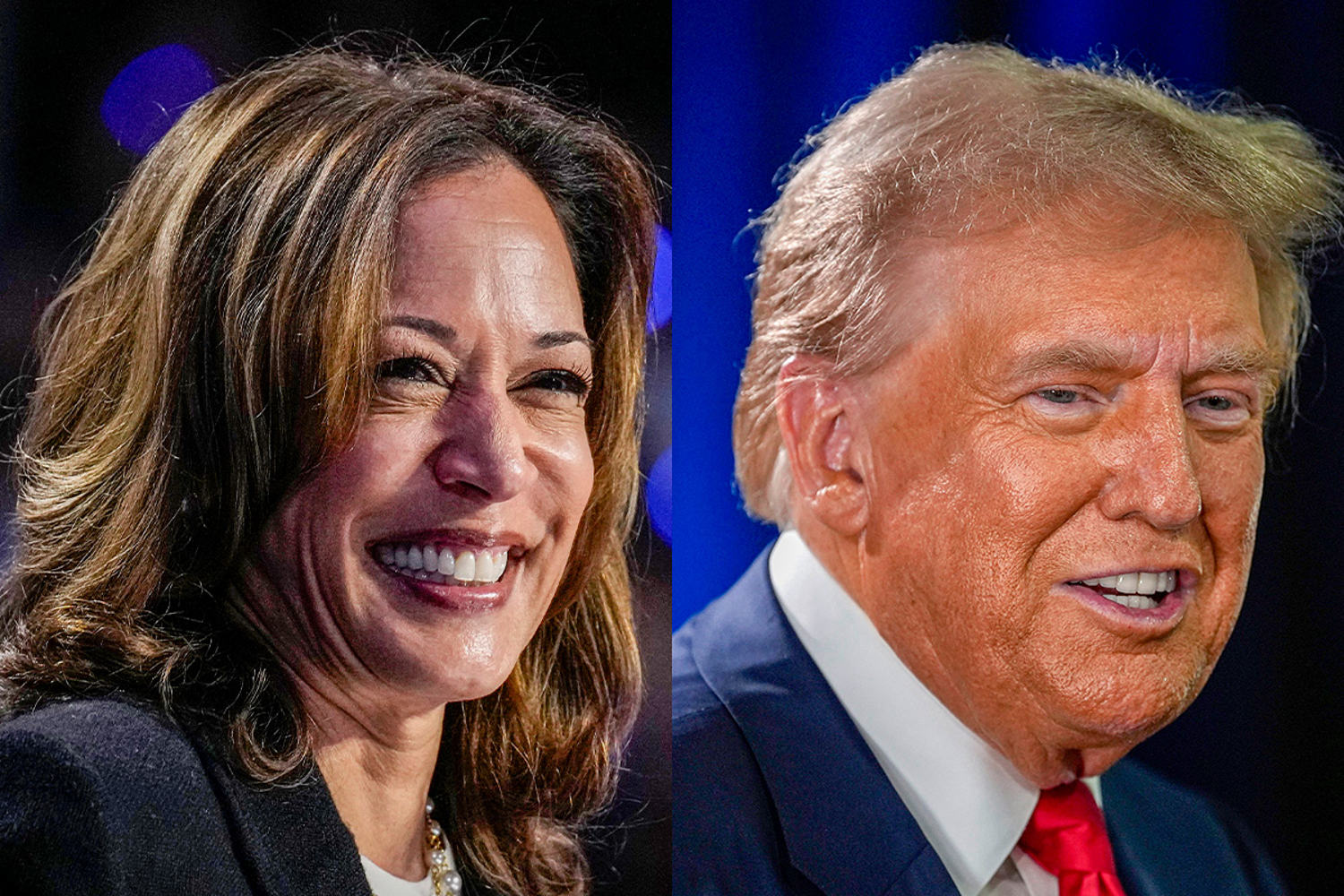
Former President Donald Trump’s campaign spent the final Sunday of the 2024 election on all-too-familiar turf: responding to the reaction to the candidate.
Speaking at a rally outside Lancaster in the crucial swing state of Pennsylvania, Trump noted the bulletproof glass that his security team has used to protect him since he was shot in the ear this year in the western part of the state.
“To get me, somebody would have to shoot through the fake news,” he said. “And I don’t mind that so much.”
Trump, who had criticized the media earlier in his remarks, drew immediate backlash for the violent rhetoric. His spokesman Steven Cheung quickly fired off a statement insisting that Trump was arguing the media should be shielded and that he was “looking out for their welfare, far more than his own!”
Once again, in a race that a Sunday NBC News poll shows is tied, 49% to 49%, heading into Tuesday’s election, Trump hijacked his own message with a loose-cannon style that has defined the stretch run of his campaign. Just hours earlier, Vice President Kamala Harris, the Democratic nominee, made a very traditional — and politically safe — appearance on NBC’s “Saturday Night Live.”
Harris’ bit, a mirror-like dialogue with Maya Rudolph, who portrays her on the show, revolved around plays on her name — “pajama-las,” “Rom-Com-ala” and the like — rather than the highly charged politics of the moment.The choice to briefly detour from the swing-state trail — but not tight scripts and friendly audiences — reflects the very cautious approach Harris has taken as she contrasts herself with an opponent she says is “unhinged.”
If anything, this clash of styles has become more pronounced at the end of the campaign. Harris varies little from her stump speech at rallies. Many of her long-form interactions with the media have been with friendly interviewers.
“We’re doing everything that we need to do,” said a Harris aide who noted that she speaks to “gaggles” — groups of reporters — regularly on the campaign trail and does one or two interviews a day. “We’re doing literally everything we can possibly do to reach voters.”
Trump campaign aides did not respond to a request for comment.
Rob Godfrey, a South Carolina-based Republican strategist, said Trump has handed Harris gifts by playing into her strategy.
“The vice president’s campaign has benefited from two things lately — and they have afforded her the luxury of being a bit more selective about where she appears and on what terms,” Godfrey said. “Those things are a less-disciplined opponent, who has reminded people of some of what they remember less fondly about him, and an all-star lineup of surrogates who carry her message better, in some cases, than she does.”
Trump has long held that “prevent defense” is a losing strategy, and he is going on offense — offending many Americans in the process — as he winds up what will be his final campaign.
Over little more than a week, Trump talked about people shooting through the media, said he would protect women “whether they like it or not” and appeared at a rally where one of his warm-up acts called Puerto Rico “garbage.”
“Trump has never had a persuasion audience in mind throughout this campaign,” said Faiz Shakir, who managed the 2020 Democratic primary campaign of Sen. Bernie Sanders, I-Vt. “He’s focused on die-hards and the likely-to-be-inclined. For anyone who didn’t like the behavior conduct and management of his last presidency, he gave them nothing.”
And, Shakir added, “the closing affirms all that.”
Last week, Democrats had to perform clean-up duty on a surrogate who has largely been absent from her campaign: President Joe Biden appeared to say Trump’s supporters are “garbage.” (The White House said he was specifically referring to the comic who said the same about Puerto Rico.)
Aside from the “SNL” appearance and a trip to Washington to speak from the Ellipse at the foot of the White House last week, Harris has stuck to the seven swing states that both campaigns have long viewed as the keys to Electoral College victory.
Trump traveled last week to New Mexico and Virginia — states outside the main battlefield — to try to put them in his column. Whether that’s a sign of confidence in his standing in the battlegrounds or a wasted opportunity to reach the most targeted voters remains to be seen.
While millions of voters cast their ballots early and battleground airwaves are inundated with ads focused more on policy contrasts than campaign styles, there are signs that undecided voters in swing states are weighing all of the information they receive about the candidates.
Deshaun Hall, 38, a self-described “Afro American” poet from Pennsylvania, told NBC News that he’s considering whether to back the candidate he thinks would help him more financially — Trump — or Harris, who he thinks would do better for others economically. And he’s listening to how Harris and Trump package themselves.
“I never heard her say nothing on TV that seems crazy,” Hall said. “But the side effect to that is you don’t feel like you know who she is.”
Godfrey said the fight over the final votes may come down to how those who are concerned about Harris or more amenable to Trump’s platform than his personality make their choices.
“The open questions, in this context, are whether people will take a chance on the former president, even if he is acting out a bit more than he has, and whether the political capital of her surrogates is transferrable to her,” he said. “We’ll know those answers shortly.”
